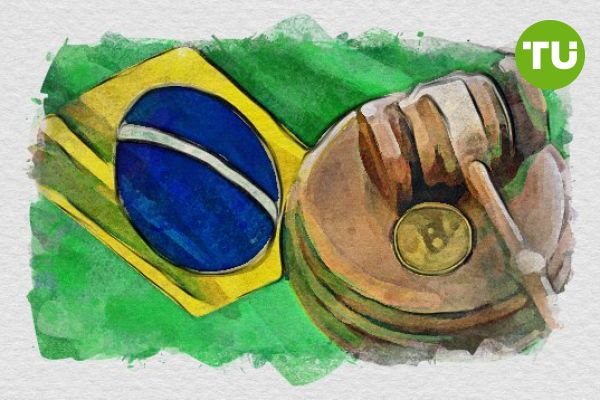Brazilian investor loses court case after failing to provide contract for crypto deal
 Brazilian investor loses court case about Crypto
Brazilian investor loses court case about Crypto
A Brazilian investor has lost a lawsuit after failing to present a formal contract to substantiate his claim of a R$ 100,000 ($20,000) cryptocurrency investment.
The Santa Catarina State Court of Justice (TJSC) ruled that a bank statement alone was insufficient evidence to establish a consumer relationship with the companies involved, according to Livecoins.
The case, which recently appeared in the Jurisprudência Catarinense Informative, involved two companies, including 3xBit, a cryptocurrency platform. The investor alleged that he purchased digital assets on October 23, 2019, and initially withdrew some funds before losing access to his account. He claimed the companies “disappeared,” leaving his investment unrecoverable.
Court finds lack of sufficient evidence
In his petition, the investor requested contract termination and reimbursement of his funds. However, the court ruled that simply transferring money does not prove the nature of the transaction. The rapporteur emphasized that the burden of proof rested on the plaintiff, who failed to provide sufficient documentation. The decision was unanimously upheld by the panel of judges.
Although Brazil’s Consumer Protection Code applies to such cases, the court determined that reversing the burden of proof would require the defendants to produce “negative proof,” an unreasonable legal expectation.
The ruling highlights growing judicial scrutiny of cryptocurrency disputes in Brazil. Recent legal discussions, including a São Paulo court review of fraud cases and a judicial training program in Mato Grosso do Sul, suggest that crypto-related lawsuits are gaining prominence.
As digital assets become more mainstream, investors may face increasing legal challenges if they fail to document their transactions properly—raising concerns over consumer protection in the rapidly evolving crypto landscape.
Meanwhile, Brazil has solidified its status as a global leader in crypto, with 26 million citizens—12% of the population—owning digital assets. This ranks the country sixth worldwide in crypto adoption, highlighting its growing impact in the sector.













































































































































